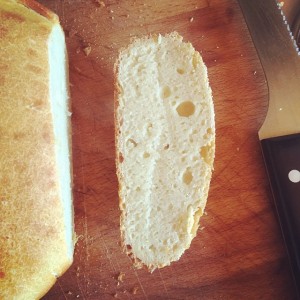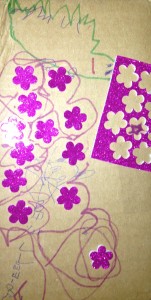
Current Hearts of Tabat wordcount: 108569
Total word count for the week so far (day 1): 6011
Total word count for this retreat: 37380
Worked on Hearts of Tabat, “Poppy”
Time spent on SFWA email, discussion boards, other stuff: an hour
Classes that are coming up soon and still have room! All times are Pacific Time.
- July 15 (Wednesday), 7-9 PM ““ First Pages Workshop Section 1
- July 17 (Friday), 2-4 PM ““ Writing Your Way Into Your Novel, Section 2
- July 19 (Sunday), 9:30-11:30 AM ““ First Pages Workshop Section 2
Got up early, fed the chickens, ate my yogurt and drank my (overly-trendy kombucha). For those following along with interest regarding the sourdough adventures, the pancakes were divine but the bread was densely textured to the point where it sat in one’s stomach like wet gravel. I do know what I did wrong — I tried to adapt my no-knead bread recipe to use sourdough starter and I need to go back to square one and try a traditional recipe like this one or this one.
Those pancakes were awesome though. Here’s the recipe I used.
Here’s today’s excerpt, taken from Hearts of Tabat:
The Duke’s bedroom has pieces in it that are over 300 years old, imported from the Old Continent on the original Duke’s ship, so long ago, and were old even then. There is a little cabinet made of silver and a dark wood that no longer grows anywhere in this world, for sorcerers eradicated it. There is a table inlaid with opals and in its center a great crystal, once used by the sorcerer Baltazar to spy on his enemies, and looped around it the crystal Baltazar’s general and queen, Aiofe, had worn until the day she was destroyed by grinding the bones that were all that were left of her between two great millstones. That dust had been released far out to sea, and no one had ever heard of Aiofe again, so perhaps her soul was at rest now.
There is a single armchair, a great brooding red thing of velvet, with gilded arms, its echo of a throne not at all accidental. There is no accompanying armchair, just a little stool onto which someone could sink if necessary, but the message is clear that one stands in the Duke’s presence. This room is an entire floor of the south-east tower “” above it is only storage, and things that he prefers stay hidden. The windows on the floor above have been blocked off, secured against entrance, and where they are physically stoppered, the windows here, on all sides of the chamber, are spell-warded, invisible barriers that will halt any intruder, strong enough for even the most intrusive magic.
On the floor is a medley of beast skins: manticore and hydra leather seven-timed tanned into a buttery suppleness, the splotched palomino hindquarters of a Centaur (its human section elsewhere), a Unicorn’s pearly hide, the curls of its mane like sea foam; pelts dark-furred and light, enough of them that the stone floor is not visible. They are cleaned whenever his Grace is not in his chambers, a hurried cleaning, beating the hides out in an inner courtyard and combing out the long-pelted ones, stroking the undersides with sandalwood incense and then putting down a layer of sweetgrass below the layer of hides, so they gave underfoot.
The aetheric light hanging in the center of the chamber is one-of-a kind, a chandelier of liquid light, flowing back and forth between the arms of the light, the light the clean crisp blue-light of the lanterns lining the streets of the city far below. Most spell work cand be seen in that light, and that is another layer of protection for the cautious Duke.
The bed itself is like a massive shelf, also pelt-covered, a zoo’s worth of spotted and speckled, striped and solid, the barest hint of hair over hide next to shaggy mats of black and moonlight. A canopy hangs over the mass, swagged in Tabat’s blue and gold, both shades darkened past the norm, to navy and amber, and sagging downward as though to caress and envelop the sleeper.
On either side of the bed, in narrow vases made of slanted angles of crystal, are sprays of jasmine, hot-house forced and luxuriant as only a plant that has never known insect can be. Perfume seeps from them, and contained by the canopy and back curtains, is contained so the sleeper lies in a pool of scent.
There are shelves of things, trophies and ornaments, little demonstration machines created by the College of Mages, which this Duke has sponsored more heavily than any Duke before him.
There is not a single book in the room. Nothing of paper, not even a map, though there are pictures on the wall, heavy oil canvases, all of the Duke, in a variety of attitudes, all of them flattering. There is a common tone to all these pictures, a palpable obsequiousness and eagerness to please that deepens the eyes, making them see wiser, and clefts the chin just a notch, in the way that is currently fashionable. There are six of these portraits.









2 Responses
Yesterday’s wordcount and excerpt. http://t.co/bw1uqxOB4u
And yes, that is a reference to Love, Resurrected – http://www.beneath-ceaseless-skies.com/stories/love-resurrected-by-cat-rambo/ although I will need to make the names match up.